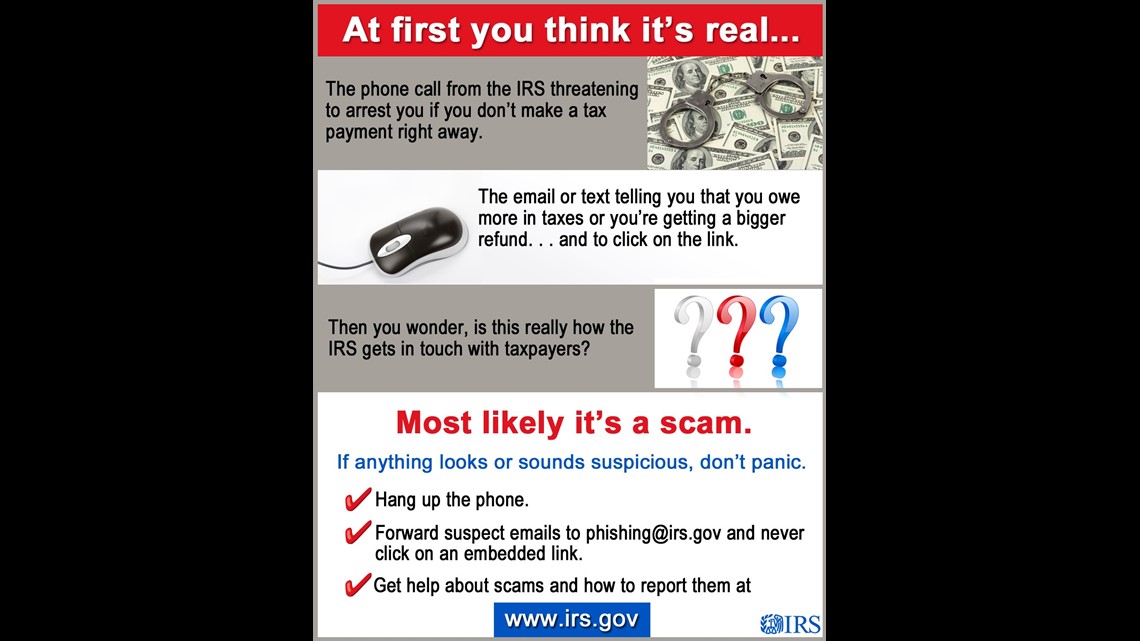

If you’re an American taxpayer, you’re at risk of a convincing scam that has impacted tens of thousands of people.
Scammers claiming to be from the Internal Revenue Service have been calling taxpayers demanding payments, according to a statement from the IRS. The fraudulent callers even spoof the IRS’ toll-free number on caller ID, which makes it appear as though the IRS is calling.
Victims may be told that they owe money and need to pay the IRS immediately. If the scammer is unsuccessful after the first attempt, they may try calling back.
By mid-August, 2014, the Treasury Inspector General for Tax Administration had received 90,000 complaints of the scam. More than 1,000 victims who have lost around $5 million to the scam have been identified.
IRS Commissioner John Koskinen said if the IRS needed to contact you about something, their first attempt at communication would not be a phone call, but an official correspondence sent through the mail.
“A big red flag for these scams are angry, threatening calls from people who say they are from the IRS and urging immediate payment,” Koskinen said. “This is not how we operate. People should hang up immediately and contact TIGTA or the IRS.”
Here’s what may happen if you’re being scammed:
- Scammers use fake names and IRS badge numbers. They generally use common names and surnames to identify themselves.
- Scammers may be able to recite the last four digits of a victim’s Social Security number.
- Scammers spoof the IRS toll-free number on caller ID to make it appear that it’s the IRS calling.
- Scammers sometimes send bogus IRS emails to some victims to support their bogus calls.
- Victims hear background noise of other calls being conducted to mimic a call site.
- After threatening victims with jail time or driver’s license revocation, scammers hang up and others soon call back pretending to be from the local police or DMV, and the caller ID supports their claims
Several potential victims have reported the number 202-609-7070 as being part of the scam.
Taxpayers are reminded that the IRS would never:
- Ask for a credit card, debit card, or prepaid card information over the phone
- Insist that taxpayers use a specific form of payment to pay their taxes
- Request immediate payment over the phone
- Take enforcement action immediately after a phone conversation
If you get a phone call from someone claiming to be from the IRS, here’s what you should do:
- If you know you owe taxes or you think you might owe taxes, call the IRS at 1.800.829.1040. The IRS employees at that line can help you with a payment issue, if there really is such an issue.
- If you know you don’t owe taxes or have no reason to think that you owe any taxes (for example, you’ve never received a bill or the caller made some bogus threats as described above), then call and report the incident to TIGTA at 1.800.366.4484.
- If you’ve been targeted by this scam, you should also contact the Federal Trade Commission and use their “FTC Complaint Assistant” at FTC.gov. Please add “IRS Telephone Scam” to the comments of your complaint.



